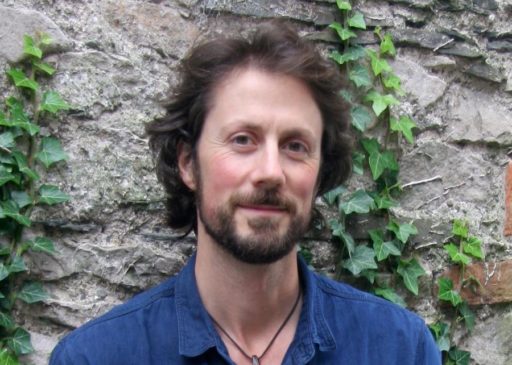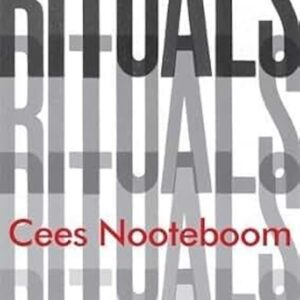The work of certain authors—Ivan Illich, Edward Abbey, Noam Chomsky, and Gore Vidal come to mind—alternately fascinates and frustrates me. Their idiosyncratic takes on urgent enormities like war, the fate of the earth, and the future of humanity occasionally veer from well-crafted arguments and illuminating narratives to what are, in my opinion at least, tiresome rants and dubious anecdotes. Yet they are spot-on far more often than otherwise, which is more than I can claim for my writing.
Self-declared enemies of power and influence, they dig below the surface of what we think we know, questioning the unnatural institutions and habits we’re told to accept as “just the way things are.” They are typically dismissed as cranks, a disparagement often received as an honor. As the maverick political economist, E.F. Schumacher put it, “A crank is a very elegant device. It’s small, it’s strong, it’s lightweight, energy efficient, and it makes revolutions.”
It’s not lost on me that the writers named above are white males, mostly from families of privilege, who might have lived quite comfortably going along with “the way things are,” but chose not to. Perhaps that’s part of their appeal to me, who so resembles them save for their manifestly superior talent, learning, clarity, and boldness. They offer hope that I, too, can shed some of the social blinders that accompany my unmerited privilege. I learn much from reading cranks who happen to be women, people of color, or from quite different stations in life, but they don’t carry the same baggage.
Furthermore, Illich, Abbey, and Schumacher share with me an affection for the small, local, and particular over against the massive, centralized, and homogeneous. Were they alive, that trio would likely also share my fondness for Wendell Berry, who titled one of his essay collections, Another Turn of the Crank. For me, however, Mr. Berry stands in a special category of crank. Though he and I disagree at times, he rarely leaves me scratching my head in frustration.
I’m certain Paul Kingsnorth, another white male crank, is fond of Berry’s work. Kingsnorth, an English-born author now living with his family on a small farm in the west of Ireland, edited and introduced a recent anthology of Berry’s nonfiction, The World-Ending Fire. The two authors have broad areas of agreement: humans are not separate from “the environment” but creatures living in complex webs of dependence and cooperation; modern habits and narratives of progress have so blinded us to that interdependence that we are in an ecological crisis of our own making; and any way out of this predicament lies not in inventing new, “sustainable” technologies but by drastically curtailing our habits of consumption through simpler and more localized ways of living.
That said, Kingsnorth’s writing is markedly more apocalyptic. Berry’s interlocking fictions chronicle a century and a half of “membership” in the Kentucky town of Port William, a place battered yet unbeaten by the world of corporate greed and mechanized efficiency. Kingsnorth’s Buckmaster trilogy consists of three distinct but thematically related stories set in the English moorlands over two millennia. The first novel, Wake, takes place just after the Norman Conquest of 1066, as the country’s new French overlords impose a brutal new regime on a divided and dispirited Anglo-Saxon peasantry. Narrated in what Kingsnorth calls a “shadow tongue” strange enough to suggest Old English while remaining accessible to modern readers (with the assistance of a glossary), Buccmaster (sic), a small landowner, lashes out against the strangers who have overturned his world. Leading a ragtag group of anti-Norman insurgents, Buccmaster grows increasingly frantic as strange visions, half-remembered pagan gods, and the visible ruins of a defeated people loosen his grip on reality. Like his countrymen, he must submit to the new ruling power, willing or unwilling.
In Beast, a novella set in twenty-first century England, the hermit-like Edward Buckmaster wanders the same, if now diminished, moorland, searching for and pursued by a menacing catlike creature. Told in spare, contemporary English, the book is an amalgam of neo-pagan primitivism and Buddhist austerity that calls into question any notion of progress in an age of ecological collapse. While set in our own time, it seems to occur entirely out of time, scrambling what we may think we know of beginnings and endings.
Alexandria, volume three of the trilogy, concerns a small, primitive religious community living a thousand years in the future. Perhaps the last surviving humans on an ecologically devastated earth, they are stalked by “K,” an eloquent humanoid attempting to persuade them to shed their bodies and upload their consciousness, joining those who have already entered a promised digital utopia called “Alexandria.” K, a gnostic servant of the artificially intelligent and equally gnostic Wayland, can assume whatever form is most desired by those it hopes to seduce, a temptation the pantheist human remnant finds hard to resist.
All three novels are fiercely imagined, richly evocative, and—save for Wake, which is set in the past—troublingly inconclusive. That Kingsnorth’s fiction reaches for inchoate answers to bottomless questions is confirmed by reading his non-fiction: Confessions of a Recovering Environmentalist and Other Essays, and Strange Gods. There’s much to be gained in watching him turn over and examine responses to looming planetary catastrophe like stones on a beach. I prefer absorbing questions to ready answers, and his essays are sufficiently layered to defy easy synopsis or ready paraphrase. Kingsnorth forthrightly confesses what he doesn’t know while qualifying what little he does—most of the time. When, however, he goes on a rant, he brings his intellectual and rhetorical gifts to bear in such a way that selective readers from the ends of any number of political and interpretive polarities claim him as their ally. As one critic says of Kingsnorth’s fiction:
…it is easy to see why Kingsnorth has found readership with conservatives, liberals, and progressives alike. The overarching plot might serve as a warning about the dangers of man-made climate change, but Kingsnorth’s prognosis emphasizes all the buzz words that conservatives love: limits, form, self-control, and prudence.
Yet for Kingsnorth as much as Berry, these are not buzzwords abstracted from real conditions and commandeered by neoliberal ideologues, but hard-earned, practical lessons quickly negated if forced into political categories. Even his recent rant on the “authoritarian” threat of COVID mandates is more nuanced and layered than idealogues give him credit for. As much as I quarrel with Kingsnorth’s argument here, I acknowledge its ambivalent complexity.
Last summer, Kingsnorth chronicled his journey from an unchurched childhood through an adolescent atheism, followed by turns at Zen and Wicca, and leading to his recent chrismation in the Romanian Orthodox Church. The narrative is as moving as it is instructive, and I hope for Kingsnorth’s sake he’s come to stay, but it’s hard not to read this as another temporary shelter along his way. A modern Odysseus blundering his way home, Kingsnorth may soon tire of this island, too, and take his restless genius on another voyage toward some imagined Ithaca. I’ll probably keep reading him anyway.
Brian Volck is a pediatrician and writer living in Baltimore. He is the author of a poetry collection, Flesh Becomes Word, and a memoir, Attending Others: A Doctor’s Education in Bodies and Words. His website is Brianvolck.com





